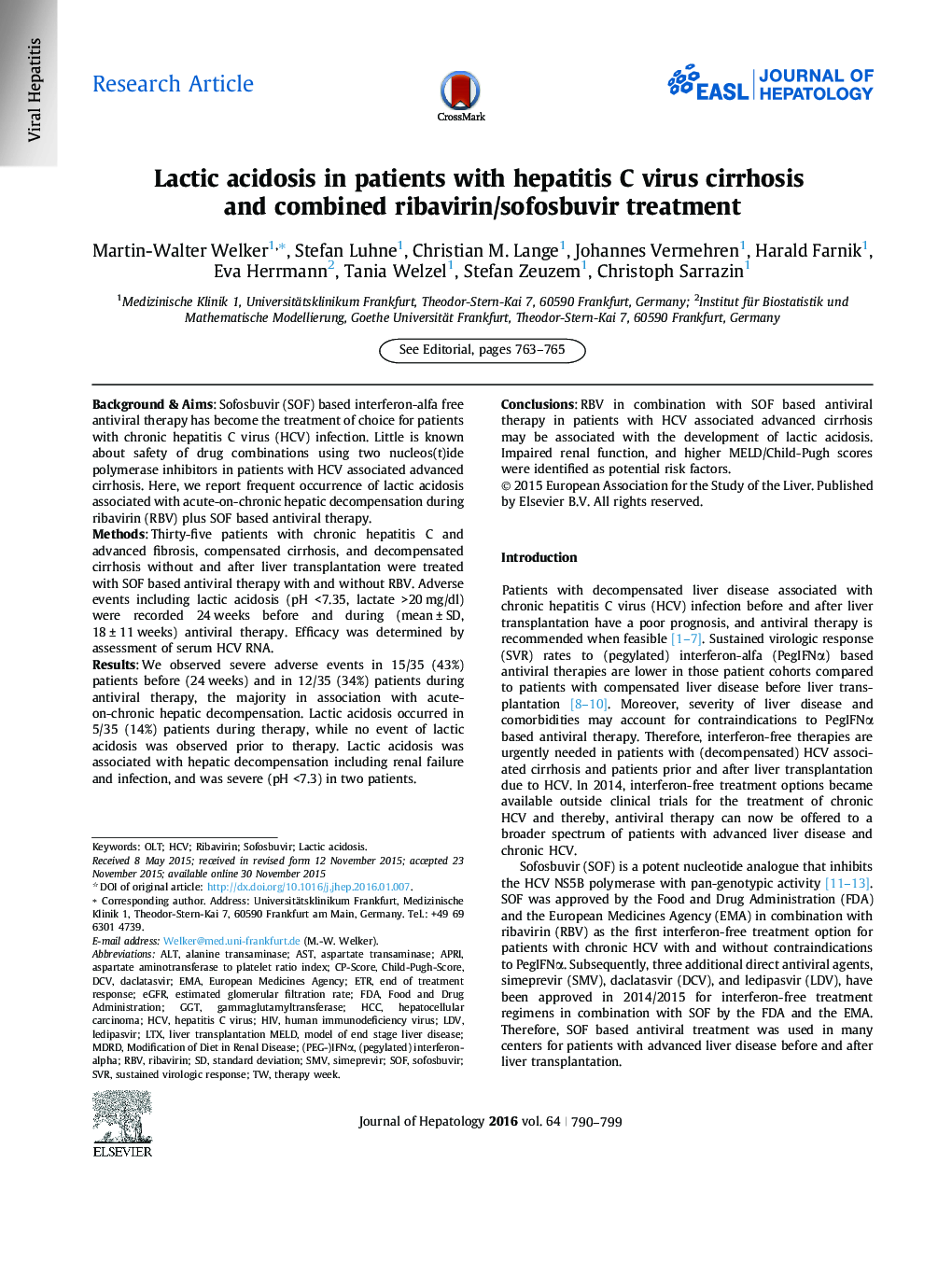| Article ID | Journal | Published Year | Pages | File Type |
|---|---|---|---|---|
| 6101380 | Journal of Hepatology | 2016 | 10 Pages |
Background & AimsSofosbuvir (SOF) based interferon-alfa free antiviral therapy has become the treatment of choice for patients with chronic hepatitis C virus (HCV) infection. Little is known about safety of drug combinations using two nucleos(t)ide polymerase inhibitors in patients with HCV associated advanced cirrhosis. Here, we report frequent occurrence of lactic acidosis associated with acute-on-chronic hepatic decompensation during ribavirin (RBV) plus SOF based antiviral therapy.MethodsThirty-five patients with chronic hepatitis C and advanced fibrosis, compensated cirrhosis, and decompensated cirrhosis without and after liver transplantation were treated with SOF based antiviral therapy with and without RBV. Adverse events including lactic acidosis (pH <7.35, lactate >20 mg/dl) were recorded 24 weeks before and during (mean ± SD, 18 ± 11 weeks) antiviral therapy. Efficacy was determined by assessment of serum HCV RNA.ResultsWe observed severe adverse events in 15/35 (43%) patients before (24 weeks) and in 12/35 (34%) patients during antiviral therapy, the majority in association with acute-on-chronic hepatic decompensation. Lactic acidosis occurred in 5/35 (14%) patients during therapy, while no event of lactic acidosis was observed prior to therapy. Lactic acidosis was associated with hepatic decompensation including renal failure and infection, and was severe (pH <7.3) in two patients.ConclusionsRBV in combination with SOF based antiviral therapy in patients with HCV associated advanced cirrhosis may be associated with the development of lactic acidosis. Impaired renal function, and higher MELD/Child-Pugh scores were identified as potential risk factors.
Graphical abstractDownload high-res image (197KB)Download full-size image
